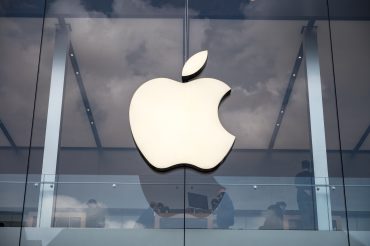
Judge Rejects Apple’s Bid to Dismiss App Store Antitrust Case
5 minute read

App Store antitrust lawsuit advances as federal court finds sufficient evidence of Apple’s alleged monopolistic practices
Key Takeaways
- Federal judge denies Apple’s dismissal motion in developer antitrust lawsuit alleging illegal monopoly through mandatory App Store payment system charging up to 30% commission
- DOJ antitrust trial set for 2027 targeting Apple’s “walled garden” strategy across multiple business segments, with potential to force structural changes to iPhone ecosystem
- $201 billion iPhone revenue at risk as Apple faces global regulatory pressure that could eliminate $20 billion Google payments and force lower App Store fees
Introduction
Apple faces mounting legal pressure as federal judges reject the company’s attempts to dismiss two major antitrust lawsuits challenging its App Store dominance. U.S. District Judge Yvonne Gonzalez Rogers ruled that app developers have “sufficiently alleged” potential antitrust violations in their claims that Apple operates an illegal monopoly through its mandatory payment system.
The decision represents a significant setback for Apple’s legal strategy and signals years of courtroom battles ahead. With iPhone sales generating $201 billion in 2024 and App Store commissions reaching up to 30%, the lawsuits target the core of Apple’s most profitable business segments.
Key Developments
The developer lawsuit, filed in 2020, accuses Apple of creating anticompetitive conditions by requiring all iOS app transactions to use Apple’s payment system. According to Reuters, plaintiffs argue this monopoly increases consumer prices and restricts developer innovation.
Separately, federal Judge Julien Neals of New Jersey allowed the Department of Justice’s sweeping antitrust case to proceed to trial in 2027. The DOJ lawsuit, filed in 2024, targets Apple’s “walled garden” strategy across multiple business areas including app distribution, digital payments, and device integration.
The legal challenges stem from a 2019 Spotify complaint that triggered extensive regulatory scrutiny. Apple now confronts parallel investigations in the European Union under the Digital Markets Act, creating global pressure on its business practices.
Market Impact
Apple maintains a commanding 65% share of the overall smartphone market and 70% of the performance smartphone segment. The company’s services revenue, heavily dependent on App Store commissions, faces direct threat from potential regulatory changes.
The legal uncertainty creates additional financial exposure beyond current cases. Apple could lose its $20 billion annual payment from Google as part of separate antitrust proceedings, while European regulators have already forced new App Store fee structures under the Digital Markets Act.
Investor confidence faces pressure from the prospect of years-long legal battles and potential structural remedies that could fundamentally alter Apple’s integrated ecosystem approach.
Strategic Insights
The DOJ specifically targets Apple’s ecosystem integration strategy, alleging the company prevents apps from becoming “super apps” with multiple functionalities. Prosecutors claim Apple restricts game streaming services, limits smartwatch compatibility, and controls digital wallet access to maintain market dominance.
Apple’s “walled garden” approach has historically driven customer loyalty and premium pricing power. However, regulators now view this integration as anticompetitive barriers that prevent consumer choice and developer innovation.
The cases reflect broader tech industry scrutiny affecting Google, Amazon, and Meta. Apple’s unique hardware-software integration makes it a particularly high-profile target for antitrust enforcement across multiple jurisdictions.
Expert Opinions and Data
Apple maintains its practices ensure user security and platform reliability. The company argues it competes with multiple app stores and online platforms across different sectors.
“We believe this lawsuit is wrong on the facts and the law, and we will continue to vigorously fight it in court,” an Apple spokesperson stated. The company emphasizes that other courts have deemed some commission practices fair, though anti-steering policies face continued legal challenges.
Industry observers view the proceedings as an existential threat to Apple’s current business model. App maker Proton filed an additional class action lawsuit on the same day as Judge Neals’ decision, seeking to dismantle Apple’s integrated approach through developer coalition efforts.
Conclusion
Apple faces sustained legal pressure across multiple jurisdictions as courts reject dismissal attempts in major antitrust cases. The 2027 DOJ trial timeline ensures prolonged uncertainty around the company’s core revenue streams and ecosystem strategy.
With bipartisan political support for tech antitrust enforcement and parallel European regulatory action, Apple confronts a coordinated challenge to its market position. The outcomes will establish new precedents for competition and consumer choice in digital markets, potentially reshaping the broader technology industry’s competitive landscape.





